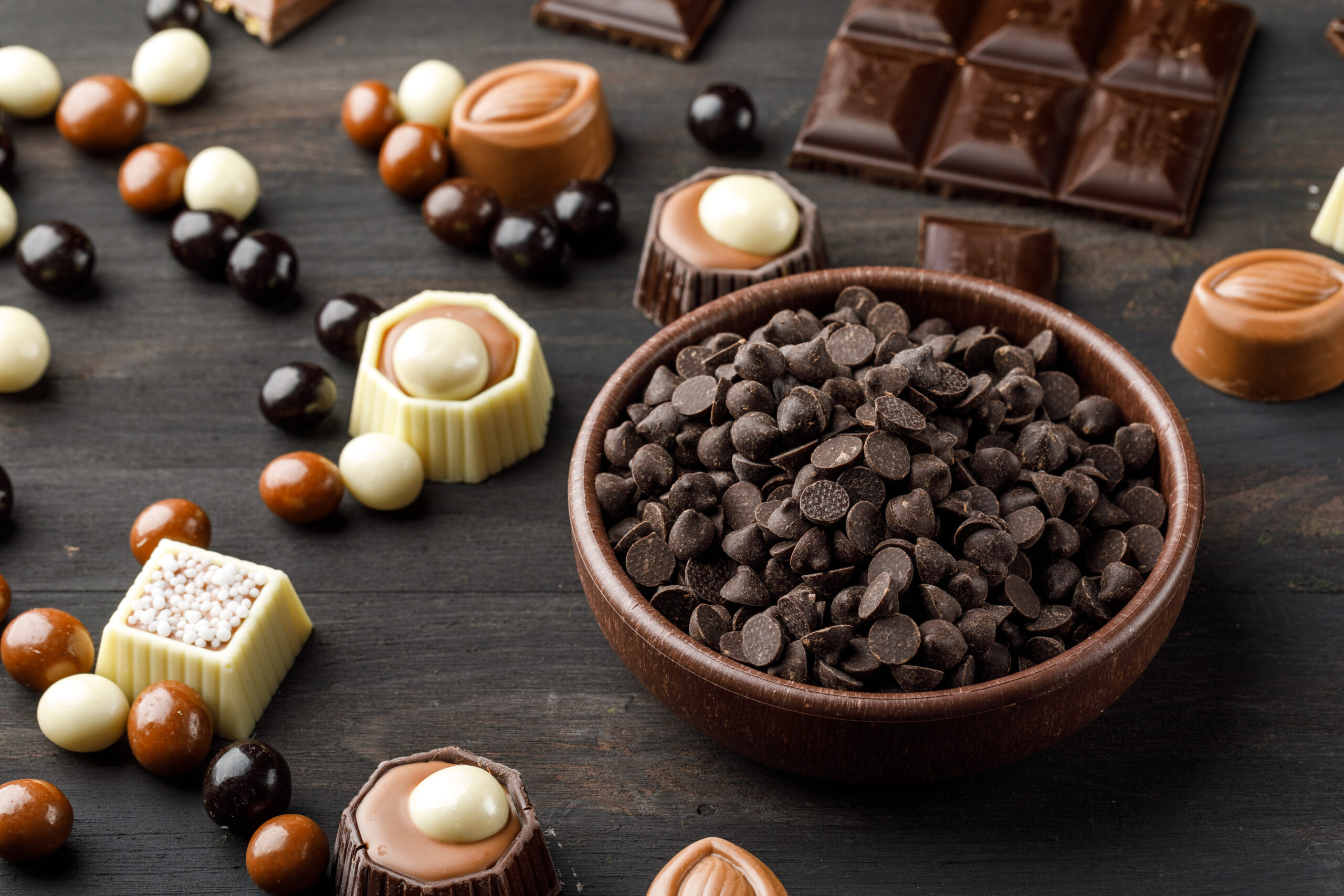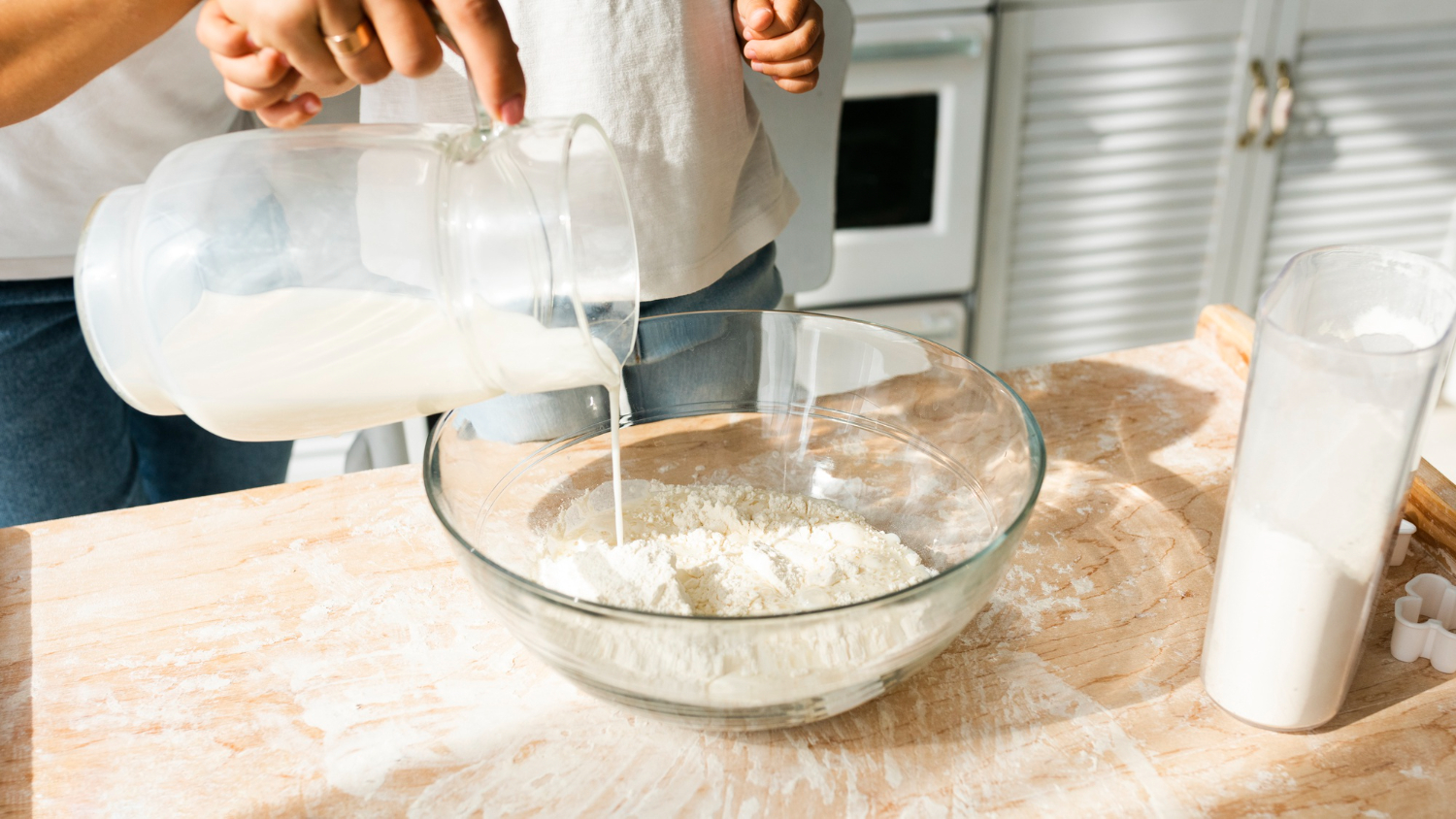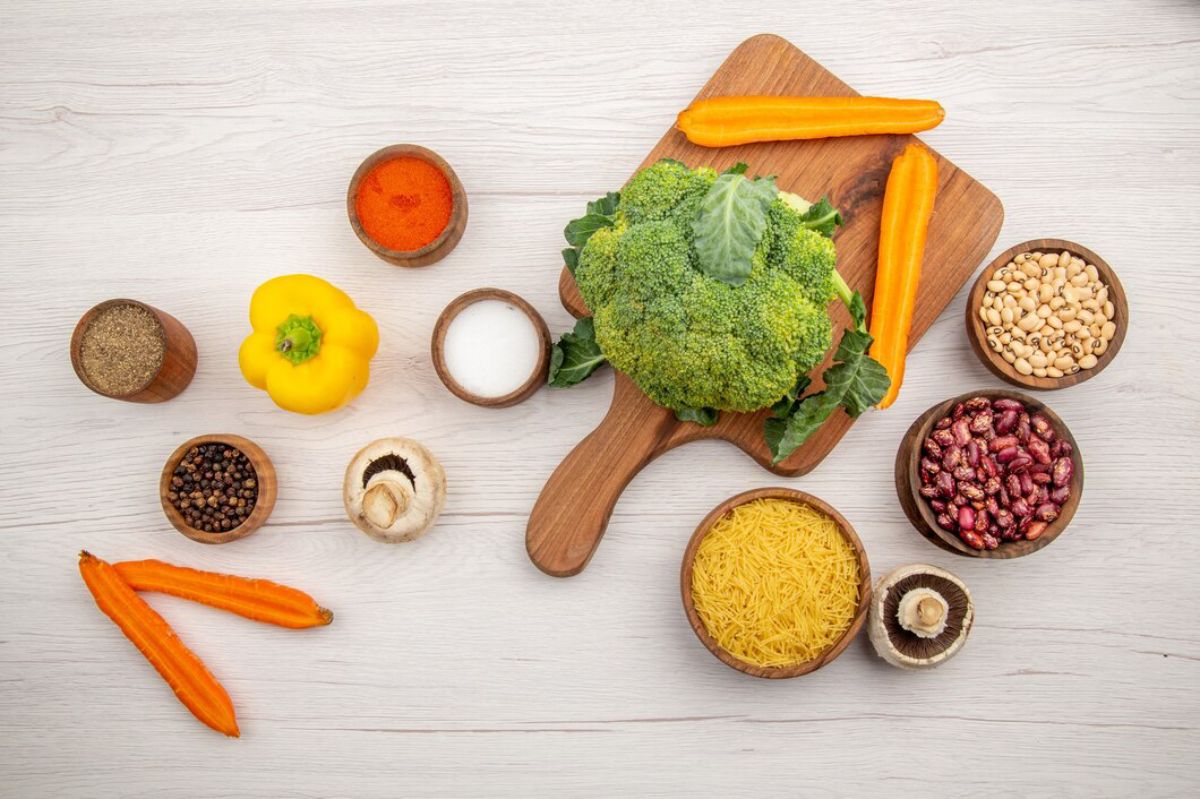
Gut Health & Digestion: Best Foods for a Healthy Microbiome
Good digestion and a balanced gut microbiome are essential for overall health and well-being. The gut is critical in nutrient absorption, immune function, and mental health. Knowing about gut-healthy foods can help you choose better meals, boosting your digestion and overall well-being.
Incorporating gut-friendly foods like probiotics, fibre-rich fruits, and fermented products can improve digestive wellness. Yoghurt, kefir, sauerkraut, and kimchi provide beneficial bacteria that support a healthy microbiome. Prebiotic foods like garlic, onions, and bananas nourish these good bacteria. A well-balanced gut reduces bloating, supports immunity, and even enhances mood. Read our blog to explore the best probiotic foods for optimal digestive health.
Why Gut Health Matters
The gut hosts trillions of microorganisms, including bacteria, viruses, and fungi. Together, they form the gut microbiome. These microbes play a vital role in digestion, immune defence, and mood regulation. A healthy gut microbiome helps digestion, boosts energy, and sharpens mental clarity.
Eating gut-health foods helps your microbiome thrive and boosts digestion.
The Role of Diet in Gut Health
A diet rich in diverse, whole foods is crucial for maintaining a healthy gut. Certain foods promote beneficial gut bacteria, while others can disrupt the microbiome. Processed foods, too much sugar, and artificial additives can upset gut bacteria. This can cause digestive discomfort and long-term health problems.
Best Foods for Gut Health
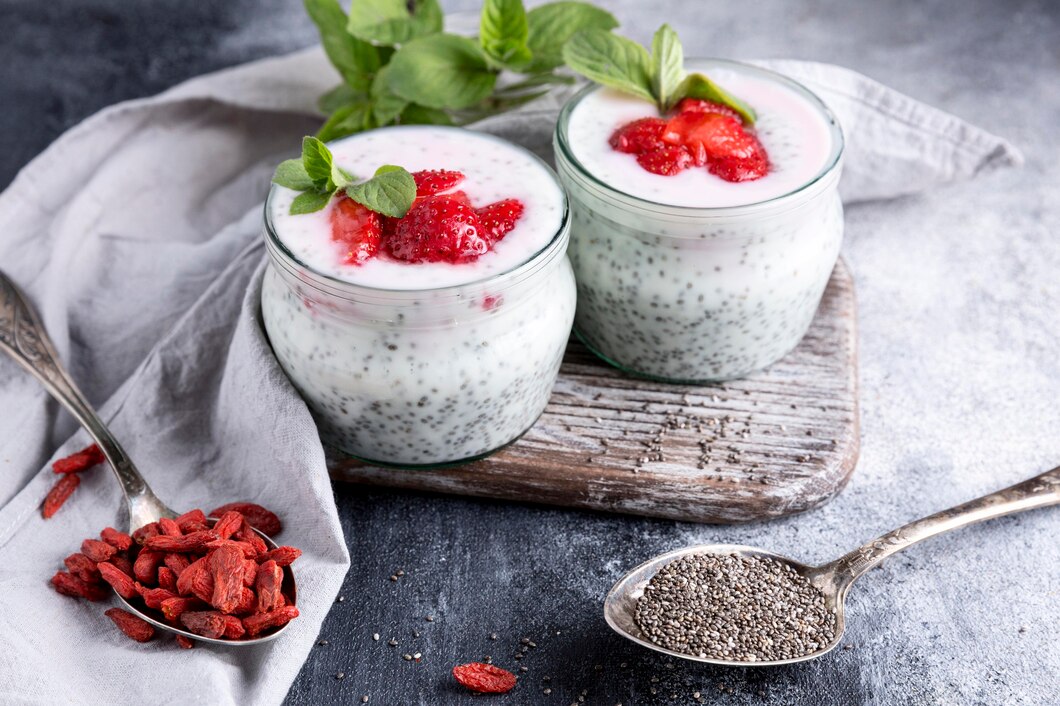
Here are the best foods for your gut health:
Fermented and Probiotic Foods
Consuming the best probiotic foods is one of the most effective ways to improve gut health. Probiotics are live beneficial bacteria that help restore and maintain a balanced microbiome.
- Yoghurt : A well-known probiotic food rich in lactobacillus and bifidobacteria.
- Kefir : A fermented milk drink with diverse probiotic strains.
- Sauerkraut : Fermented cabbage packed with probiotics and fibre.
- Kimchi : A spicy Korean side dish made from fermented vegetables.
- Miso : A fermented soybean paste commonly used in Japanese cuisine.
- Tempeh : A protein-rich, fermented soybean product beneficial for digestion.
Prebiotic Foods
Prebiotics are non-digestible fibres that feed the beneficial bacteria in your gut, helping them thrive.
- Garlic : Supports gut bacteria while offering antimicrobial properties.
- Onions : High in inulin, a type of prebiotic fibre.
- Leeks : Contains prebiotic fibre that promotes bacterial growth.
- Bananas : Provide resistant starch, which is essential for gut bacteria.
- Asparagus : A great source of prebiotic fibre.
- Chicory Root : One of the richest sources of inulin fibre.
High-Fibre Foods
Fibre is key for digestion and gut health. It helps control bowel movements and supports good gut bacteria.
- Legumes : Lentils, chickpeas, and black beans are rich in fibre.
- Whole Grains : Oats, quinoa, and barley help promote digestive regularity.
- Chia Seeds : High in soluble fibre, supporting healthy digestion.
- Flaxseeds : Aid in digestion and support bowel health.
- Vegetables : Broccoli, carrots, and Brussels sprouts provide gut-friendly fibre.
Polyphenol-Rich Foods
Polyphenols are plant compounds that act as antioxidants and promote gut bacteria diversity.
- Berries : Blueberries, strawberries, and raspberries support gut microbiota.
- Dark Chocolate (In Moderation) : Contains gut-friendly polyphenols.
- Green Tea : Supports gut health and reduces inflammation.
- Red Wine : Aid in digestion and support bowel health.
- Olive Oil : A staple of the Mediterranean diet known for its gut benefits.
Bone Broth and Collagen-Rich Foods
Bone broth is rich in amino acids and collagen, which can help repair the gut lining and reduce inflammation.
- Bone Broth : Supports gut lining integrity and overall gut function.
- Eggs : Contain essential amino acids for gut repair.
- Salmon : Rich in omega-3 fatty acids, which reduce gut inflammation.
Foods to Avoid for a Healthy Gut
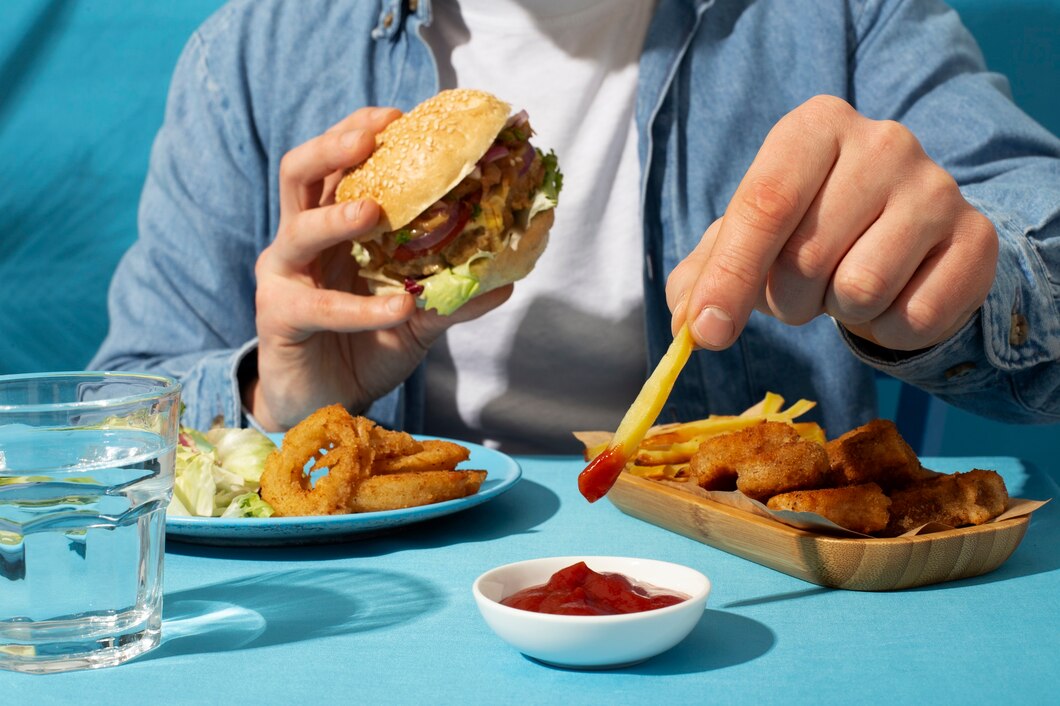
While certain foods promote gut health, others can harm the microbiome and disrupt digestive wellness.
- Processed Foods : Highly processed foods have artificial additives, preservatives, and poor-quality fats. These can upset the gut microbiome.
- Excessive Sugar and Artificial Sweeteners : High sugar intake can lead to an imbalance in gut bacteria, promoting the growth of harmful microbes. Artificial sweeteners like aspartame and sucralose may negatively affect gut bacteria diversity.
- Alcohol and Caffeine in Excess : Moderate drinking is usually fine, but too much alcohol or caffeine can hurt your gut. It may irritate the gut lining and upset the balance of gut bacteria.
- Refined Grains : White bread, pasta, and other refined grains don’t have enough fibre for a healthy gut. This can cause digestive discomfort and upset the balance of gut bacteria.
Lifestyle Habits for Better Gut Health

Here are some lifestyle changes for a better gut health:
- Stay Hydrated : Drinking enough water supports digestion and helps maintain a healthy gut lining.
- Manage Stress : Chronic stress can negatively impact the gut microbiome. Practising mindfulness, yoga, and deep breathing exercises can support digestive wellness.
- Exercise Regularly : Physical activity promotes gut motility and encourages a healthy balance of gut bacteria.
- Prioritise Sleep : Poor sleep can disrupt gut health, leading to digestive discomfort and weakened immunity. Aim for 7-9 hours of quality sleep each night.
- Eat Mindfully : Chewing food well and eating slowly helps digestion. It also allows the body to absorb nutrients better.
The Gut-Brain Connection: How Gut Health Affects Mental Well-Being
Emerging research highlights the strong link between gut health and mental well-being. The gut is called the “second brain” because it makes neurotransmitters like serotonin. These affect mood and mental health. A balanced gut microbiome can boost focus, cut anxiety, and improve overall brain function.
How to Incorporate Gut-Healthy Foods into Your Diet
To improve digestive wellness, start by making small, sustainable dietary changes. Here are a few tips:
- Start your day with probiotics : Enjoy a bowl of yoghurt with berries or a glass of kefir.
- Add prebiotic foods to meals : Incorporate garlic, onions, and leeks into stir-fries and salads.
- Choose fibre-rich snacks : Opt for a handful of nuts, seeds, or fresh fruit.
- Drink gut-friendly beverages : Sip on green tea or bone broth throughout the day.
- Include fermented foods : Add kimchi, sauerkraut, or miso to your meals for a probiotic boost.
Take Charge of Your Gut Health
Eating gut-health foods can significantly improve digestion and boost your well-being. To build a healthy microbiome, include the best probiotic foods. Also, add prebiotics, fibre-rich options, and gut-friendly polyphenols to your diet. They support your health from the inside out. Small but powerful dietary changes can boost digestion, immunity, mental clarity, and energy.
Start your journey to better gut health today by making simple swaps and embracing a diet rich in whole, nourishing foods!
